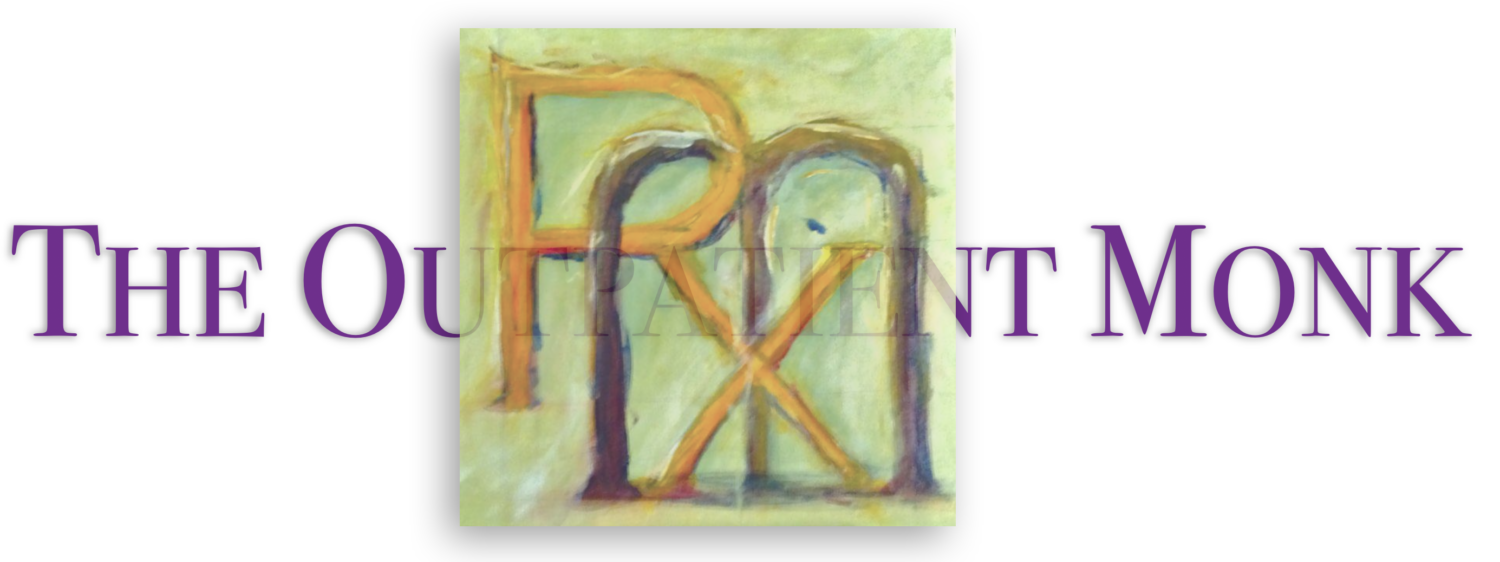
The flip of the switch between October and November is not just one, but a string of three different holidays of utter significance. Of course Halloween is the best known and, second only to Christmas, the most expensive of U.S. holidays. It is followed immediately by All Saints Day from which all hallow’s eve gets its name. But it is today, November second, that is my pick of the three: All Soul’s Day. The day, if you play along, is a day that offers a peculiar grace, and a fierce one. It is the grace of forgiving, and not forgetting.
There is a logic to the string of days. One night we purposefully imagine the

This is important because the lives of the saints continue tell a story, not about magic and supernatural miracles, but about genuine human possibility. Rather than being quite otherworldly (as we sometimes want to make them) the lives of the saints are often tragic, fragile and flawed, but nevertheless lives of compassion and devotion.
It is much easier for us to think of people like Mother Teresa as magic and metaphysically different than us, because then we feel exempted from following

their example in our own way.
The patterns of their lives are distinct; saints tend to be people who realistically accept who they are – owning their gifts and limitations, live simple lives free of exorbitant possessions, pray simply and in earnest, gather to worship, and live lives of compassion, caring for others especially those who suffer most. The patterns seem clear but the extraordinarily creative ways people come to live those patterns make those stories worth retelling. They show us they ways in which a radical loving and devout life is possible for everyone in his or her own way. They bridge the gap from the very unfamiliar Jew the Jerusalem of 2,000 yeas ago to the Buda, TX and Cincinnati OH of today.
But there is indeed a gap, not just of time and space but of effort and intent, of will and ability. We are not saints.
Herein lies the good news of today. On this day we do get to remember everyone who has died, all of them without restraint. Do you see how the logic of these holidays go? We conjure the worst images of ourselves, we reflect on the best examples of what humans can be, and then the think about, well, all of us. Anyone can be recollected, re-membered and celebrated today because everyone can be forgiven.
I don’t just mean some abstract notion of the forgiveness of God. I mean humans, especially in death, have learned to forgive and transform some incredibly horrible stuff.
But it is the very act of remembering, and not forgetting, that is the act of grace.
I remember soon after college one of the well respected spiritual leaders died tragically young. I remember sifting awkwardly during the memorial service listening to the unqualified praises of some of his biggest fans. What made me uncomfortable about the memorial service was not a sense that I wanted him to receive less honor, but I think we were failing to really learn from his life. In death we often sanitize people’s lives to the extent that the parts of their lives loaded with the wisest lessons to be learned simply cease to exist.
Dana and I had a hard relationship. We tended to see through each other a little bit, it was like having a friend who knew-to-much and it meant we didn’t always play along when one of us was leaning more into our reputation than into our integrity. It means we sometimes took the wind out of each other’s sails and sometimes we even hurt each other. I don’t want to forget those things. I don’t even want to forget when he failed me and hurt me. Our relationship was hard but it was a relationship he chose to be a part of. He was willing to forgive me over and over when he was alive to stay in the game. I want to remember and I want to love him and evoke him anyway.
Learning to love someone unconditionally doesn’t end, even long after his or her life does.
I am not suspending the memory of the flaws of others, I am choosing to remember them. For there is a real and concrete grace between people who bring the lives of other’s to mind with no possibility of reciprocation. It is too late to fix anything, and I am still welcoming you into my house.
Our stories are most profoundly shaped by how we live them with and for each other. I am not the only author of my life, I am now and will always be at the mercy of your grace and memory. And you are at mine.
The truth is that this is how I want to be living with you everyday. I want to practice as best as I can and infinite hope, a place of hope that can honestly see you as you are and believe in possibility that we can help to bridge the gap for each other between us and God.
Today is a day for all souls. It is a day to believe in the saints we have yet to become.


I love this! I agree that we tend to sanitize people’s memory. Have you ever read the Ender’s Game series? In Speaker for the Dead, Ender goes around the world and encourages people to speak the truth about their loved ones at funerals, to remember the good and the bad, to remember them well.
I also love the line, “It is too late to fix anything, and I am still welcoming you into my house.” It is very difficult for us humans to love without strings attached and without a certain set of expectations.
Thanks Karissa. You pinpointed one of my most intentional sentences in the pieces and while, no, I have mo read the series (or seen the movie) You have provided the most compelling argument so far to do so.